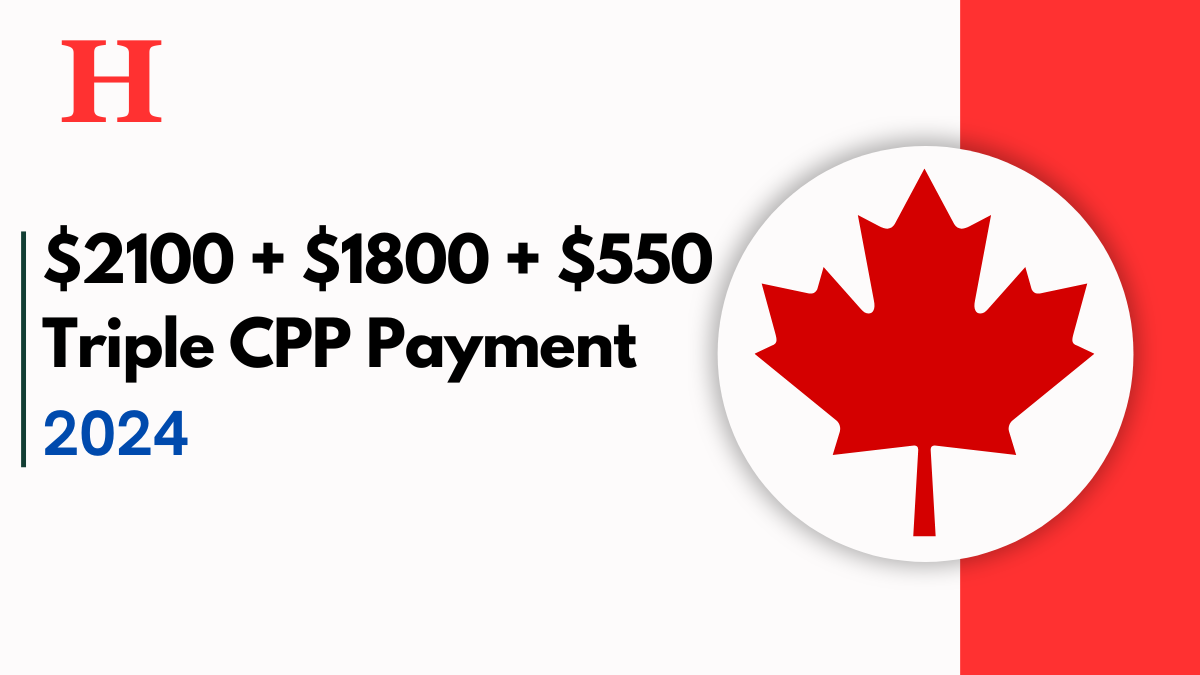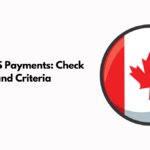With rumours circulating about a potential triple Canada Pension Plan (CPP) payment in January 2025, many Canadian seniors are curious about whether these payments are real and how much they might receive. The rumoured amounts—$2,100, $1,800, and $550—have generated widespread interest, but questions remain about their legitimacy, eligibility requirements, and exact payment dates.
This article aims to clarify these rumours, explain the workings of the CPP, and provide tips for maximizing your retirement benefits.
$2100 + $1800 + $550 Triple Canada CPP Payment
The rumours about a triple CPP payment in January 2025, totalling $2,100, $1,800, and $550, have gained traction among retirees. However, there is no official confirmation from credible sources such as Service Canada or the Canada Revenue Agency (CRA) to validate these claims. While it’s important to stay informed about potential government changes, seniors should be cautious and rely on official channels for accurate information. The regular CPP payment is still scheduled for January 29, 2025, with no additional lump sums confirmed.
Planning your retirement finances involves understanding the CPP and other available benefits, such as Old Age Security (OAS) and the Guaranteed Income Supplement (GIS). Knowing how these programs interact is crucial for long-term financial security.
Payment Rumor Breakdown
| Payment Rumor | $2,100 + $1,800 + $550 Triple CPP Payment |
|---|---|
| Payment Date | January 29, 2025 (regular CPP) |
| Maximum CPP Benefit | $1,364.60 per month in 2025 |
| Average CPP Benefit | $816.52 per month in 2025 |
| Eligibility | 60+ years old, CPP contributions required |
| Fact Check | No official confirmation from CRA regarding triple payment |
What is the Canada Pension Plan (CPP)?
The CPP is a government-managed retirement benefit designed for Canadians who have made contributions throughout their working lives. These contributions are typically deducted from your paycheck and matched by your employer, or fully paid if you’re self-employed. CPP payments can start as early as age 60, but the standard age to begin receiving full benefits is 65. Delaying the start of your CPP payments until as late as 70 can increase the monthly benefit by up to 42%.
Key CPP Benefit Details (2025):
- Maximum Monthly CPP Benefit: $1,364.60
- Average Monthly CPP Benefit: $816.52
- Delayed Payment Increase: Postponing CPP benefits to age 70 can significantly increase payout.
Rumored Triple CPP Payment: Fact or Fiction?
Online speculation has been rife regarding a triple CPP payment in January 2025, with amounts of $2,100, $1,800, and $550. These rumors suggest the payments are meant to address inflation and economic hardship and offer one-time financial relief to seniors. Here’s a breakdown of what these payments are rumored to represent:
- $2,100: Allegedly tied to inflation adjustments to help retirees combat rising living costs.
- $1,800: Supposedly an additional payment to help seniors facing economic challenges, possibly linked to post-pandemic recovery efforts.
- $550: A rumored one-time payment intended to support low-income seniors, regardless of CPP enrollment status.
Despite the buzz, Service Canada or the CRA have not officially verified that these payments will be made. Similar one-time payments were issued during the COVID-19 pandemic to support vulnerable groups, but no announcements have been made regarding extra payments for 2025. The regular CPP payments for January will continue as scheduled, with the next payment date set for January 29, 2025.
How the CPP System Works
To qualify for CPP, you must have made contributions during your working years in Canada. The size of your CPP payments depends on your total contributions and the age at which you start receiving the benefit.
Important CPP Details:
- Eligibility: You must be at least 60 years old and have contributed to CPP for a minimum of 39 weeks during your working life. The full benefit is available starting at age 65, with increased amounts available if you delay your payments until age 70.
- Payment Schedule: CPP payments are made monthly, typically on the third-to-last business day of the month. For January 2025, the payment date is set for January 29.
Other Retirement Benefits for Canadian Seniors: OAS and GIS
In addition to CPP, Canadian seniors may be eligible for two other important government benefits: Old Age Security (OAS) and the Guaranteed Income Supplement (GIS). These programs provide additional financial support for retirees and can be combined with CPP benefits to improve your overall retirement income.
Old Age Security (OAS)
- Eligibility: Available to Canadians aged 65 or older, regardless of whether they contributed to CPP.
- Maximum OAS Benefit (2025): $718.33 per month.
- Application: OAS does not start automatically, so you need to apply through Service Canada.
Guaranteed Income Supplement (GIS)
- Eligibility: Aimed at low-income seniors who receive OAS.
- Maximum GIS Benefit (2025): Up to $1,072.93 per month, depending on income and marital status.
- Application: You must apply for GIS when applying for OAS, and the benefit amount depends on your household income.
How to Maximize Your Retirement Benefits
To maximize your retirement benefits, consider delaying your CPP payments until age 70 to receive the highest possible monthly amount. Additionally, apply for OAS and GIS as soon as you become eligible to enhance your financial security in retirement. Stay informed about government updates through official channels like Service Canada, and be cautious of unverified rumors to avoid confusion regarding potential payments.
In conclusion, while the rumors about a triple CPP payment have sparked interest, it’s important to verify any such claims through reliable sources. As of now, no additional payments have been confirmed, and seniors can expect their regular CPP payment on January 29, 2025. Combining CPP with OAS and GIS, if eligible, will provide a more stable financial foundation in retirement.
Click the link to know more

Ruth Alba is a dedicated writer with a passion for creating original, insightful content. With a focus on delivering plagiarism-free work, he brings clarity and creativity to each piece. His work reflects a commitment to integrity, originality, and engaging storytelling that resonates with readers.




